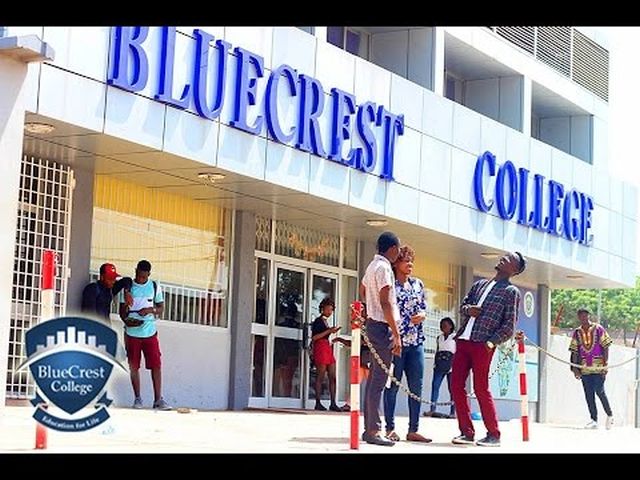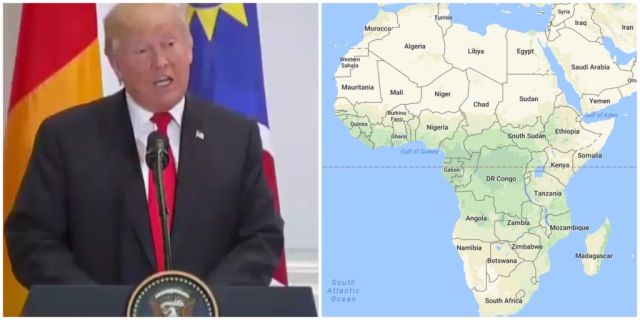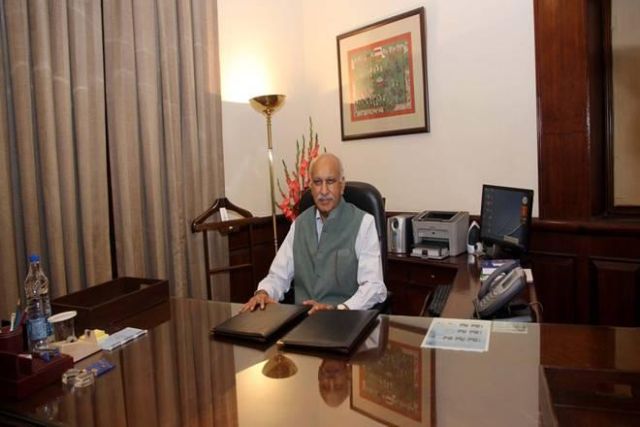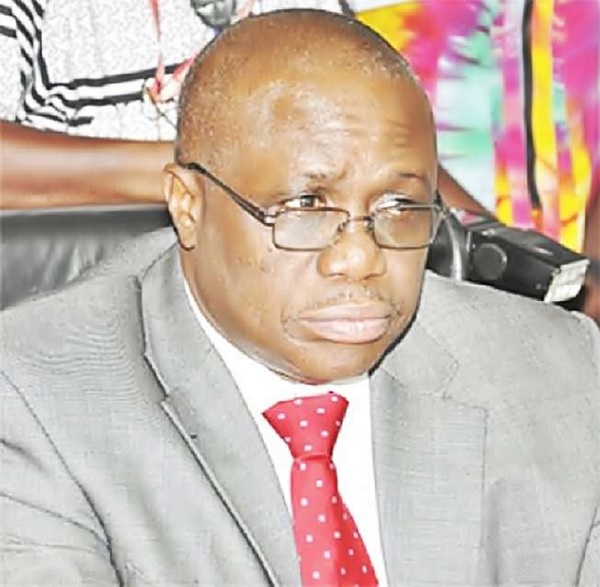
by admin | May 25, 2021 | Investing, World

Bluecrest University
By Francis Kokutse,
Accra : Following the success stories of Indian-owned educational institutions Bluecrest University (formerly NIIT) and IPMC Training in Ghana, other Indian companies can take advantage of the government’s decision to offer tax breaks to entrepreneurs to improve the country’s education sector.
Presenting the 2018 budget earlier this month, Finance Minister Ken Ofori-Atta said Ghana is considering tax breaks to assist entrepreneurs in the higher institutions sector to help position the country as a higher-education hub as of the recent growth in the sector which has attracted students from the West African region to the country.
Figures from the National Accreditation Board (NAB) show that there are 10 public universities and 79 private universities in the country. There are also five registered tertiary institutions. But these do not seem to be serving the enormous number of students looking to enter universities.
Ofori-Atta said the education sector represents high-growth potential with multiplier effects on the economy as confirmed by a recent “Country Private Sector Diagnostic” study by the World Bank Group. This is also borne out by the rapid growth in privately-owned and managed universities as well as in the inward flow of students from the West Africa sub-region.
It was, therefore, the government’s intention to “support the sector in order to position Ghana as the premier higher education hub of the sub-region and to attract critical foreign direct investment into the sector”.
The World Bank-International Monetary Fund report said the capacity of Ghana’s public universities has not kept pace with demand and only half of all applicants to public universities can be admitted. It described this as a growth area that needs more investment.
The report said student enrolment in tertiary education is growing at 10 per cent annually, from 175,000 in 2011 to 267,000 in 2014. “However, the tertiary gross enrolment rate remains at only 18 percent, as opposed to a target of 25 per cent set by the government, leaving room to improve access to higher education,” the report noted.
It said the demand for tertiary education is expected to continue to grow strongly, given the increasing enrolment at the senior high-school level. To keep up with rising demand and high gross enrolment rate targets, the government is considering distance education as a key solution.
“Distance education comprises about 15 per cent of total tertiary enrolment, with University of Cape Coast being the largest provider (about 37,000 enrolments). Apart from public universities, some private universities, such as Laweh Open University College and Accra Institute of Technology, also offer distance education,” the report said. However, the presence of private providers is limited to less than one per cent.
Last year, the President of the Accra Institute of Technology (AIT), Clement Dzidonu, said the current number of higher institutions for a population of 25 million translates into a university per capita rate of around 3.5 compared to the global average of 18.6. As a result, he said, given the Gross Enrolment Rate of tertiary education in Ghana, the country was registering just 10 per cent as against the global average of 27 per cent.
(Francis Kokutse can be contacted at fkokutse@gmail.com)
—IANS

by admin | May 25, 2021 | World
 New York : US President Donald Trump has emphasized in a meeting with African leaders the “business potential” of their continent, noting that he knows that because “so many” of his friends go there “to get rich”.
New York : US President Donald Trump has emphasized in a meeting with African leaders the “business potential” of their continent, noting that he knows that because “so many” of his friends go there “to get rich”.
“Africa has tremendous business potential,” Trump said in his address on Wednesday during a working luncheon in New York with the leaders of Uganda, South Africa, Ivory Coast, Guinea, Namibia, Nigeria, Senegal, Ghana and Ethiopia, Efe news reported.
“I have so many friends going to your countries trying to get rich, I congratulate you. They are spending a lot of money. But it does, it has tremendous business potential,” he added.
Trump also created controversy on Twitter when he mistakenly pronounced Namibia as “Nambia” during his speech as he was emphasizing that country’s healthcare system, which he said is becoming more self-sufficient.
The President also announced that soon the US United Nations ambassador, Nikki Haley, will travel to Africa to discuss conflict resolution and prevention and, in particular, the violence in South Sudan and the Democratic Republic of the Congo.
Trump also emphasized Washington’s collaboration with African nations to fight terrorism, saying that he was “proud to work with you to eradicate terrorist safe havens, to cut off their finances and to discredit their depraved ideology, and a number of you have told me.”
After the luncheon, Trump also met with Jordan’s King Abdullah II, Palestinian President Mahmoud Abbas, British Prime Minister Theresa May and Egyptian leader Abdel Fatah el-Sisi.
—IANS

by admin | May 25, 2021 | Corporate, Corporate Governance, Corporate Reports, Economy, Investing, News, Politics

M.J. Akbar
By Francis Kokutse,
Accra : India has a different approach in its developmental relationship with other countries as it believes in sharing knowledge without any hidden agenda, Minister of State for External Affairs M.J. Akbar said at the opening of a two-day “Namaskar Africa 2017” India-West Africa Trade and Exhibition Forum here Ghana.
“Our attitude to knowledge is its powerful meaning — that it is the only thing that grows when you give it away. We are ready to share with our friends, ready to be partners and ready to be equals and not come bearing gifts loaded with debt traps. We don’t have any concept of debt traps,” Akbar said at the event.
The event, organised jointly by the Indian Commerce Ministry and the Federation of Indian Chamber of Commerce and Industry (FICCI) aims to brand India a leading economic player and partner to the West African region.
IT will help facilitate Indian investments into Ghana and neighbouring West African countries, create awareness about the best Indian technologies and products in the region as well as explore opportunities offered by the region.
“Namaskar Africa” started with an India-Central Africa Regional Business Forum in Republic of Congo.
Akbar drew a parallel between the leaders of India and Ghana in their quest to bring development to their countries. “Both leaders stand for a conviction of a new vision which is not open-ended in terms of time,” he said.
“In India, Prime Minister Modi is talking about five years whilst in Ghana President Akufo-Addo is talking about four years”, Akbar said, adding that the two leaders have adopted the use of transformation which means that they do not only have “a vision but a route map to a new horizon”.
Akbar said that the era purchases must be replaced by era of production. “This era of production must be India and Ghana led.”
He also expressed concern that in terms of trade, the developing world has, through the years, created the industry and “someone else took the profit”.
“The time has come to reverse that. We must not allow our industry to become someone’s profit. Profits must go to the people not kept by the companies.
“Growth by itself is no longer sustainable. The first fruits and largest share of growth must go to the people who live at the bottom of the growth pyramid,” Akbar added.
The minister said that the developing world has lost its voice when it comes to industry and trade. “The Portuguese did not come to India because of tourism, they came because of India’s silk”, and it was therefore time that countries in the South took back their brands.
Akbar said that in 1948 over half of the British government’s annual revenue came from the taxes on rubber in Malaysia and described this as “the rape of massive exploitation and massive theft”.
Ghana’s Trade and Industry Minister, Alan Kyerematen, said he had a soft spot for India because his “godfather was a successful Indian merchant”.
He said Ghana’s President has launched a 10-point ambitious industrial transformation agenda to bring industrialisation to the door steps of the people.
“The government and the private sector will work together to bring one industry to one district,” Kyerematen said. He invited investors from India to be part of the agenda.
These industries include agro-based ventures. In addition, there are also plans for industrial parks in 10 regions. In addition, there are also plans for a pharma park, petro-chemical industry and an integrated aluminium industry.
(Francis Kokutse can be contacted at fkokutse@gmail.com)
—IANS

by admin | May 25, 2021 | World

President John Dramani Mahama of Ghana
Accra – Ghana’s presidential election may be delayed by a month, the head of the country’s electoral body has said, after a wrangling over voter registration.
Nationwide polls in which President John Dramani Mahama is seeking re-election were scheduled to be held on November 7 – a month earlier than initially planned.
But the director of electoral services at the Electoral Commission of Ghana, Samuel Tettey, said the election could be on either date.
“If 7 November goes through we can go with it. If not and it’s 7th December, and we can go with that,” he told a news conference in the capital, Accra, on Wednesday. “So, both dates are possible but we are working towards 7 November.”
The lack of clarity over a date comes after 56 000 names were deleted from the electoral register after individuals used national health insurance scheme cards as proof of identity.
Ghana’s opposition had complained of possible fraud, as health insurance card holders do not necessarily have to be Ghanaian citizens.
The New Patriotic Party (NPP), which is looking to unseat Mahama after five years in office, complained the register was bloated with names of foreigners and minors.
The Supreme Court was asked to rule on the matter and last week ordered the 56 000 names to be expunged. Chief Justice Georgina Wood said the register in its current form was “reasonably inaccurate”.
Re-registration of those affected will begin on Monday and last for 10 days, Tettey told reporters.
(Courtesy:http://www.news24.com)

by admin | May 25, 2021 | Muslim World

Head of Banking Supervision at the Bank of Ghana Franklyn Belyne
Accra, Ghana (IINA) – The Bank of Ghana has revealed recently that Ghana could see launching operation of the first Islamic bank this year, Ghana’s online news agency Pulse.com.gh reported.
The central bank earlier had to ask for an extension of launching till November because of challenges in meeting all key banking requirements.
Islamic finance may be viewed as a form of ethical investing, or ethical lending where no loans are possible unless they are interest-free.
Among the ethical restrictions is the prohibition on alcohol, gambling and consumption of pork. Islamic funds would never knowingly invest in companies involved in gambling, alcoholic beverages, or porcine food products.
Its practitioners and clients need not be Muslims, but they must accept the ethical restrictions underscored by Islamic values.
Head of Banking Supervision at the Bank of Ghana Franklyn Belyne said the regulator is waiting for some final requirements to be met by the yet-to-be-named bank before it can start operations.





